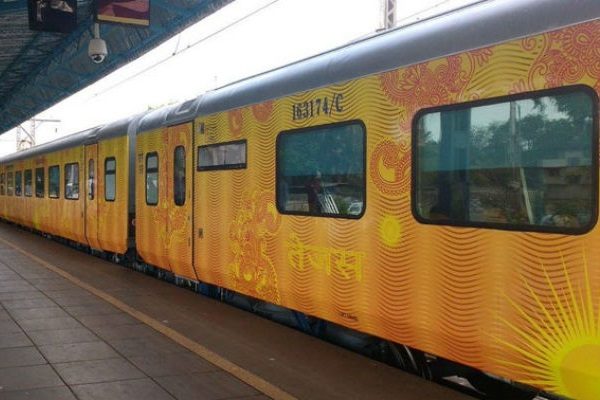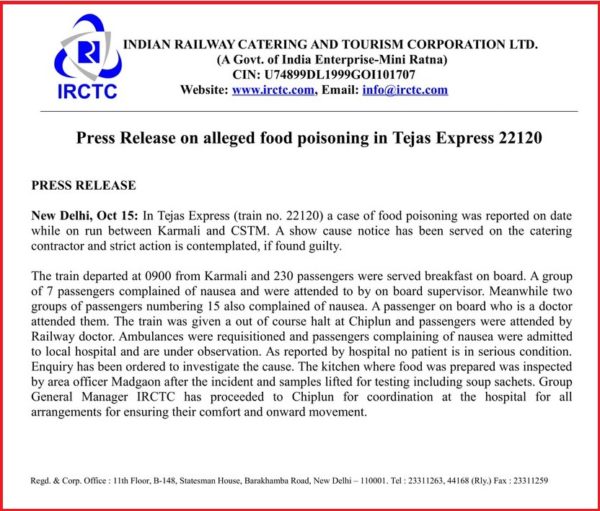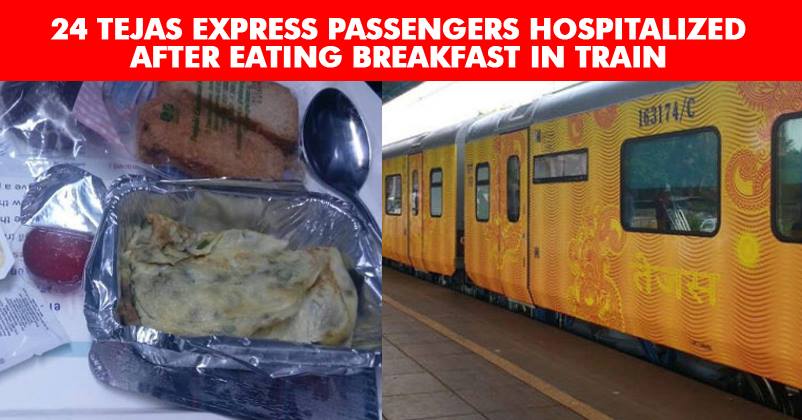The Indian Railways has always been criticized for the quality of its food which is served to the passengers in the trains and once again, an incident has taken place which proves that still nothing has been done to make sure that travelers get safe and hygienic food.
24 passengers hospitalized after eating breakfast:

On Sunday, 24 passengers of Karmali-CST Tejas Express were admitted into government and private hospitals as they fell ill after eating the breakfast which is supplied by the operator of the train’s pantry car.
IRCTC gives contract to these pantry car operators and the railways has already issued the notice of contract termination to the pantry car operator of Karmali-CST Tejas Express.
Food poisoning case happened earlier too:
An IRCTC officer said,
“A case of food poisoning was reported on train no. 22120 Tejas Express upon information from passengers. The train was stopped out of course at Chiplun railway station and treatment was given to passengers by railway doctor.”
Hospitalized people chiefly consumed omelette:
As per another officer,
“About 290 passengers were served breakfast. Around 12pm, 3 passengers complained that they were feeling uneasy and felt like vomiting. After couple of hours, more passengers complained of similar symptoms. Most of the hospitalised passengers had consumed omelette in breakfast.”
3 passengers out of 24 are in ICU but they are out of danger. The sample of the food item has been sent for inspection.
A press release has been issued by IRCTC regarding this incident:

Group General Manaager, WZ has proceeded 2 Chiplun 4 coordination at d hospital 4 all arrangements 4 ensuring der comfort & onward movement. pic.twitter.com/pYq1Hv9VCC
— IRCTC (@IRCTCofficial) October 15, 2017
CAG Audit:
If you remember, almost 3 months back, the Comptroller and Auditor General of India, after its audit, declared the food served in Indian trains and stations as “unfit for human consumption.”
In its joint inspection of 74 stations and 80 trains, CAG found that food items were subject to dust particles and they were easily accessed by flies, insects, and even rats. The report of CAG read,
“Articles unsuitable for human consumption, contaminated foodstuff, recycled foodstuff, shelf life expired packaged and bottled items, unauthorised brands of water bottles, etc, were offered for sale on stations.”
We sincerely hope that Indian Railways will learn a lesson from this incident and nothing of this sort will happen again.




